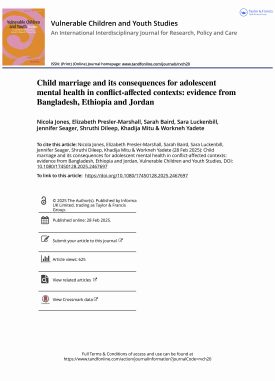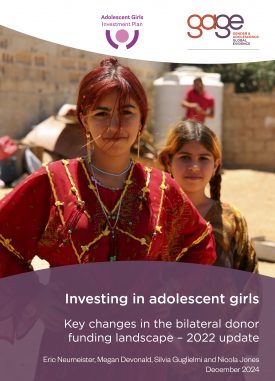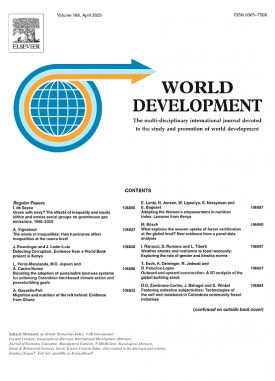Child marriage is increasingly recognised as a development priority given its far-reaching life-course and inter-generational consequences. Despite rapid progress, Ethiopia remains in the top five countries globally in terms of absolute numbers of married girls, with significant sub-national variation in the drivers and patterning of child marriage. This article applies a capabilities framing in a novel way to move debates beyond a sole focus on girls and a single modality of marriage. It explores the gendered experiences of child marriage amongst girls and boys in Amhara and Oromia regions, drawing on semi-structured interviews with 190 adolescents, 44 parents and 20 key informants from 2017 to 2020. The findings highlight context-specific economic and gender norms drivers of adolescent-initiated and parent-arranged child marriages, and their differential effects on girls and boys. The article concludes by discussing policy and programming implications in line with the 2030 Sustainable Development Agenda commitment to leave no one behind.
Suggested citation
Emirie, G., Jones, N. and Kebede, M. (2021) ‘”The School Was Closed, So When They Brought Me A Husband I Couldn’t Say No”: Exploring the Gendered Experiences of Child Marriage Amongst Adolescent Girls and Boys in Ethiopia’ The European Journal of Development Research (https://doi.org/10.1057/s41287-021-00418-9)


